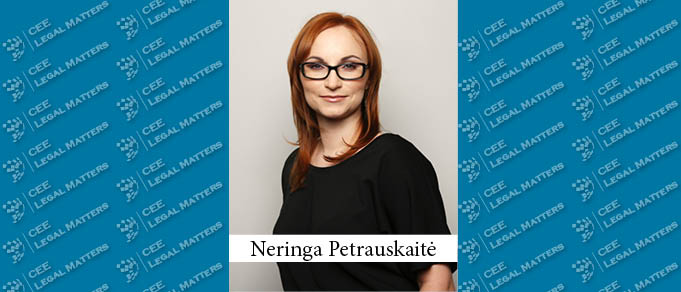Artificial intelligence (AI) is entering the legal services sector. Some law firms, particularly the largest ones, are already experimenting with AI not only to streamline internal processes but also to perform legal tasks. So, let's address the elephant in the room - AI is shrinking the legal services market by introducing a new competitive threat unlike any we've encountered before.
If you are still sceptical that AI can partially replace your work, here are some hard facts for you.
A New Competitive Threat Unlike Any We've Faced Before
Goldman Sachs research indicates that 44% of legal work could be automated by emerging AI tools. And this is already happening. GPT-4, the large language model serving as the backbone of ChatGPT and several other generative AI systems, managed to score 90% on the Uniform Bar Exam last year, which is required in the majority of jurisdictions in the United States, according to research by CodeX – The Stanford Center for Legal Informatics.
To sit for the exam, applicants must have a degree from a law school accredited by the American Bar Association. The exam takes 12 hours over two days. Successfully passing the exam requires an examinee to discern challenging factual and legal scenarios, understand and apply legal principles, and both consume and produce complex legal language.
What is even more interesting is that part of the exam, the multiple-choice Multistate Bar Examination (MBE), saw AI significantly outperform the average student passing the exam. GPT-4's score was 75.7%, while the student average was 68%.
So, the fact is that AI tools can now handle the endless reading, summarizing, creating, and filing of documents ordinarily entrusted to junior associates. And even if it doesn’t replace lawyers entirely, the emergence of generative AI stands to radically alter the nature of practicing law, as well as its business model.
The question is, what should we do knowing this?
Customers’ Expectations Are Evolving Rapidly
Between December 6, 2023, and January 9, 2024, LexisNexis interviewed executives in corporate legal departments at Fortune 1000 companies, as well as managing partners and other senior leaders at large law firms, to understand how AI is changing the market, attitudes, and organizational adoption. They found that 76% of Fortune 1000 respondents expect their outside counsel to use cutting-edge tools, including Gen AI, and 80% of corporate legal executives anticipate a reduction in billing from outside counsel due to Gen AI efficiencies. However, only 9% of law firm leaders reported that their corporate clients have expressed expectations for reduced firm bills as a result of Gen AI. These insights come from almost 200 executives.
What should be concerning is that the clients expect law firms to adopt the new tech, invest in AI, and learn to work with new tools, but this expectation may not be communicated until they receive an invoice that they perceive as overcharged.
Additionally, one-third of respondents expect law firms to introduce new pricing models by the end of this year (2024), as indicated by Thomson Reuters research conducted in May and June 2023. Another 43% of respondents expect the alternative pricing models to be presented to them later. This indicates a demand for law firms to quickly adapt their business models in response to new AI tools.
The conclusion on that: die or adapt. Don’t you agree?
Market Leaders Are Already Investing Millions in AI
The reality is that we must invest in AI tools and new skills immediately, without delay. LexisNexis survey indicates that 18% of the TOP200 largest law firms in the US with a dedicated budget for generative AI will spend 1%-2.9% of their revenue on generative AI in 2024. Given that the revenue of these firms ranges from $250 million to $6.5 billion, the planned investment in generative AI starts at $2.5 million and exceeds $100 million.
We have already heard a lot about the investments from top law firms into tools that assist in performing legal tasks. It started with investments in AI-powered document automation and review tools. For instance, Clifford Chance announced a partnership with Kira Systems in July 2016, followed by Freshfields two months later. Kira uses machine learning technology to automate the extraction and analysis of key provisions from contracts, supporting accuracy in due diligence, contract reviews, regulatory compliance, etc. Today, the same tool is also used by DLA Piper, Hogan Lovells, Herbert Smith Freehills, Freshfields, and many others. Freshfields claims that Kira Systems improved the firm’s efficiency by 20-40%. Other law firms like Bird & Bird and Dentons use Luminance for the same tasks and report very positive feedback about increased efficiency as well.
However, document automation is not the only AI tool being utilized by law firms. Recently, there has been significant interest in various generative AI tools, such as Harvey, a platform built on artificial intelligence technology from ChatGPT creator OpenAI. Harvey AI is built on a version of OpenAI’s GPT AI and is further trained with general legal data, including case law and reference materials. When engaged by a firm, Harvey AI is then trained using the firm’s own work products and templates. The tool assists with contract analysis, due diligence, litigation, and regulatory compliance and can generate insights, recommendations, and predictions based on data. As a result, lawyers can deliver faster and more cost-effective solutions for client issues.
One of the very first to adopt the platform was the global law firm Allen & Overy in February 2023, to help speed up the lawyers' work and save the firm millions of dollars. The Big Four have also joined in, with PwC signing a partnership agreement with Harvey over a year ago. Today, more than 15,000 law firms are on a waiting list to use the legal AI startup Harvey.
At the same time, Clifford Chance uses Lucy, which finds results across an organization’s knowledge and provides summaries to users’ questions. It is also integrated with Teams and Slack and can join conversations, providing valuable input to legal discussions among lawyers.
While some of these firms partner with AI developers by licensing their use, others focus on developing their own AI tools. However, time is not on their side as technology emerges rapidly and market leaders are spending millions to fuel development.
The tools in which law firms invest also include AI solutions for predictive analytics (predicting case outcomes and assessing risks), client interaction and management (such as chatbots, real-time updates to clients on case status, etc.), as well as business development and competitive intelligence (for tracking market trends and providing competitor analysis) and various marketing tools (for analytics, content production, etc.).
Most market leaders do not disclose the amount of their investments, but KPMG’s head of legal services, Stuart Fuller, was very open about The Big Four’s plans, stating that they plan to invest “tens of millions of dollars” to help corporate legal departments streamline operations, including implementing generative AI. According to him, the technology will eventually “take away part of the core business model” for law firms by handling tasks usually assigned to junior lawyers.
Where Does All of This Leave Your Law Firm?
The most important question is: what’s next, and how close is this “alternative” future? What will it look like?
Thomson Reuters, in their latest report on the State of the US Legal Market, considers three possible scenarios for the impact generative AI could have on law firms:
- It significantly enhances both client value and law firm profits by increasing efficiency and reducing costs for firms, and enabling higher-quality advice, faster service, and more creative solutions.
- Clients derive a disproportionate share of the benefits of generative AI by getting greater leverage in competitive pricing and an increased ability to bring work in-house.
- Generative AI finds utility in law firm areas such as knowledge management and search, as well as operations, marketing, IT and HR, but does not significantly alter current legal practices or firm-client relationships.
Considering the law firm investments in AI and the evolution of customer needs, I am confident that only one scenario is likely. The polarization between commodity legal work and work that requires solid experience and extensive expertise will increase, cutting the tail of commodity work that generates profits/revenues for law firms. Law firms will have less commodity work, which will be replaced by in-house teams using generative AI tools. Consequently, the legal services market will soon shrink significantly.
Where to Begin?
If you are wondering whether it's time to turn off the lights and close your firm, the good news is you still have a couple of years. Use this time to understand your options, wisely reconsider your business model, and be proactive with communication.
The change should begin with a better understanding of market options: what AI tools are available for lawyers and how they can bring you efficiency. Seminars, conferences, and various online sources are great for learning about these tools. It will take some time to choose the right ones, so don't delay the process. Meanwhile, start training your lawyers to work with generative AI tools like ChatGPT or Gemini.
Once you understand your options, the most important decision is to review your business strategy. Start with your firm's positioning strategy—how you want your target audience to perceive your law firm and what value proposition will help you meet their expectations and stay ahead of the competition. Next, conduct an audit of your client portfolio along with a review of your firm's service portfolio strategy. Consider focusing on high-value legal services such as 'grey hair' work, which involves problem-solving based on experience in notable cases and transactions, or 'rocket science' work, which requires deep expertise and creative problem-solving. Move away from 'commodity' work, which involves simple and routine problems that don't require much legal expertise.
If your target segment (existing or potential clients) doesn't plan to invest in AI and new skills, you can continue providing commodity legal services, but consider productizing these services. Productization helps optimize service delivery, automate sales, and minimize costs, allowing you to offer competitive prices to clients ensuring continuous loyalty.
New technology also brings opportunities for new service development. Consider offering legal training on security, GDPR, and other topics, as well as consulting clients on implementing AI-related processes in their companies.
After reconsidering your service portfolio, the next question is the pricing model. AI tools will help you optimize service processes, and clients will expect lower prices for some services. Analyze market competition to see what others are doing and develop a new pricing model for your firm's legal services.
Once you've done this marketing and business development strategy exercise, don't delay communication. Remember, being first offers an advantage. Adjust your marketing materials to reflect the new strategy as soon as possible. This includes updating your basic marketing materials like website, corporate presentations, sales offer templates, and your overall communication strategy.
Is There a Way to Prevent the Coming Change?
I understand this prospect might seem daunting to some of you, so I wanted to offer a glimmer of hope. You might wonder if there is any chance to halt the legal market transformation. Indeed, there is, and you are likely aware of it. AI comes with various risks, and these concerns could justify regulations that might delay market changes. However, in the meantime, I believe it is wiser to prepare and start working on your law firm’s future business and positioning strategy to adopt.
Neringa Petrauskaite is a business development and marketing strategist with 15 years of international legal service industry experience working both in-house and as a outsourced consultant.















